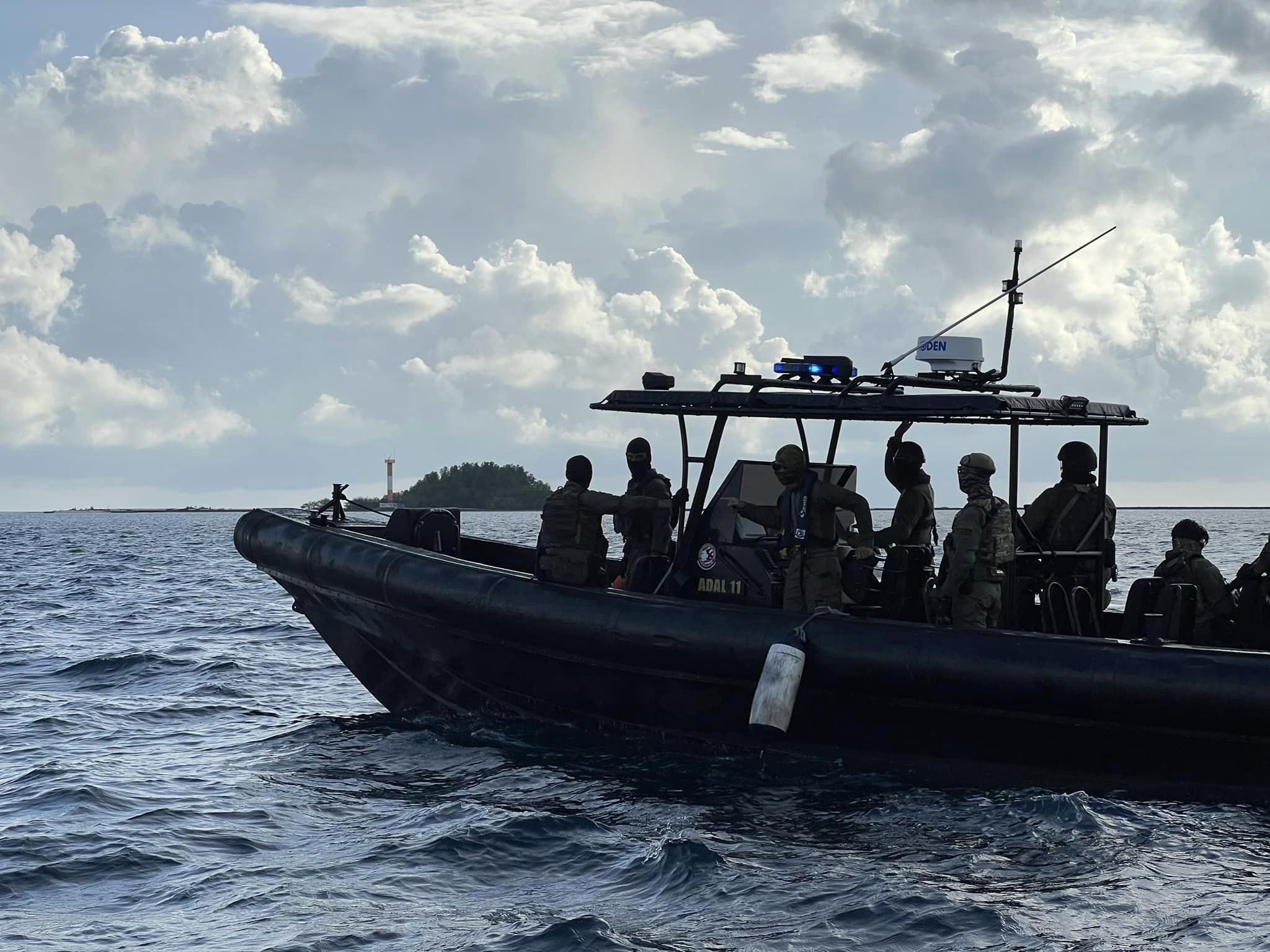
KUALA LUMPUR – The Eastern Sabah Security Command (ESSCom) is hunting down 13 individuals on its wanted list for their involvement in military activities and cross-border crime outside the Eastern Sabah Security Zone (ESSZone).
Its commander Datuk Victor Sanjos told Scoop that ESSCom and Bukit Aman’s Special Branch are constantly monitoring individuals considered terrorist threats and their activities.
Information about the wanted individuals is assessed through collaboration and intelligence sharing with Indonesian and Philippine authorities, such as the Western Mindanao Command (Westmincom), Armed Forces of the Philippines (AFP), Philippine National Police (PNP) and the Indonesian National Police (Polri).
“I will be announcing the wanted individuals’ names soon,” he said.
Through the Trilateral Cooperation Agreement (TCA), Sanjos said ESSCom coordinates enforcement actions at sea, shares intelligence, and ensures the waters of the three nations’ borders are safe from cross-border crime.
ESSCom also monitors for local involvement in such activities.

“In our surveillance so far, no movements or efforts have been made by such groups to recruit locals into carrying out and supporting any propaganda that leads to radicalism or militant elements.
“Previous arrests of some locals who were informants have been a lesson to locals to avoid involvement with cross-border crime and militant groups,” he said.
Last year, five suspects linked to militant activities were arrested in separate operations in Sabah, Sanjos added.
Zero kidnappings since 2020
Groups that ESSCom prioritises in its monitoring are the Royal Security Forces of the Sultanate of Sulu and North Borneo (RSF), Abu Sayyaf Group (ASG), Islamic State Daulah Islamiah (ISDI), and Kidnap for Ransom Group (KFRG).
Surveillance has so far found potential militant and kidnapping threats in the area to be under control with the help of military operations and enforcement actions by the Philippine authorities.
“The influence and movement of the groups on Sabah’s east coast has reduced and are almost obsolete after the death of key ASG members and the surrender of some of them in the Philippines, as of December 2023,” Sanjos said.
ESSCom has also achieved a zero-kidnapping record since January 15, 2020, a strong testament that the ESSZone’s security teams have managed to curb threats to Malaysia and in international waters off Sabah.
ESSCom’s main focus presently is to curb a second phase of an RSF attack, as well as continuing efforts to combat ASG militants and kidnapping attempts by the KRFG.
In the 10 years since its inception, ESSCom has succeeded in dismantling ASG and KFRG cells on Sabah land and its seas with the cooperation of Philippine and Indonesian authorities, Sanjos said.
Since 2015, 20 ASG members have been killed by security forces, while 17 from the same group and KFRG have been arrested.

Between 2014 and 2018, the authorities also foiled a dozen kidnapping, seizure, and robbery attempts.
“To date, 21 kidnapping cases involving 58 victims – 16 locals and 42 foreigners from Indonesia, the Philippines, China, and Taiwan – have been recorded in ESSZone, with the last incident taking place on January 14, 2020.
“Of those kidnapped, 43 hostages were freed using money, while another eight were saved by Philippine authorities.
“Six hostages were found dead or killed, and one victim is still missing. Relatively, the ESSZone remains stable with no more kidnapping incidents since February 2020,” he said.
Improving tactical capabilities
ESSCom also assists federal and state-level enforcement agencies to curb cross-border crime, including smuggling of contraband items, narcotics and firearms, untaxed products like cigarettes, controlled or subsidised goods, and the entry of undocumented migrants, Sanjos said.
However, the command conducts these operations without ownership of any security assets, as it only coordinates security operations with the support of other agencies like the police, army, and the Maritime Enforcement Agency (Maritime Malaysia).
ESSCom has planned with agencies under the Home Ministry to improve security forces operations and control capabilities in terms of development, tactical asset acquisition, and human resource capacities, Sanjos added.

These plans are:
1. The construction of the Poirgon Post in Kalabakan, which began in 2022, under the second rolling plan of the 12th Malaysia Plan. The post will be manned by the Sabah General Operations Force (GOF).
2. To strengthen surveillance of suspicious targets near the border through the Malaysia Sea Surveillance System (Swasla) operated by Maritime Malaysia.
3. To acquire a floating barge at Sg Aji Kuning, Pulau Sebatik, and Rigid Hull Inflatable Boat (RHIB) units operated by GOF, placed in strategic locations around the ESSZone coast.
4. To acquire unmanned aerial vehicles (UAV), drones, and remote cameras operated by ESSCom to identify and monitor suspicious targets.
5. To deploy GOF company from the 14th Battalion in Tawau to strengthen security forces at the Malaysia-Indonesia border. This will be an initial step to strengthen border control before establishing a full-fledged battalion in the Nabawan, Keningau, and Kunak districts. – January 30, 2024


